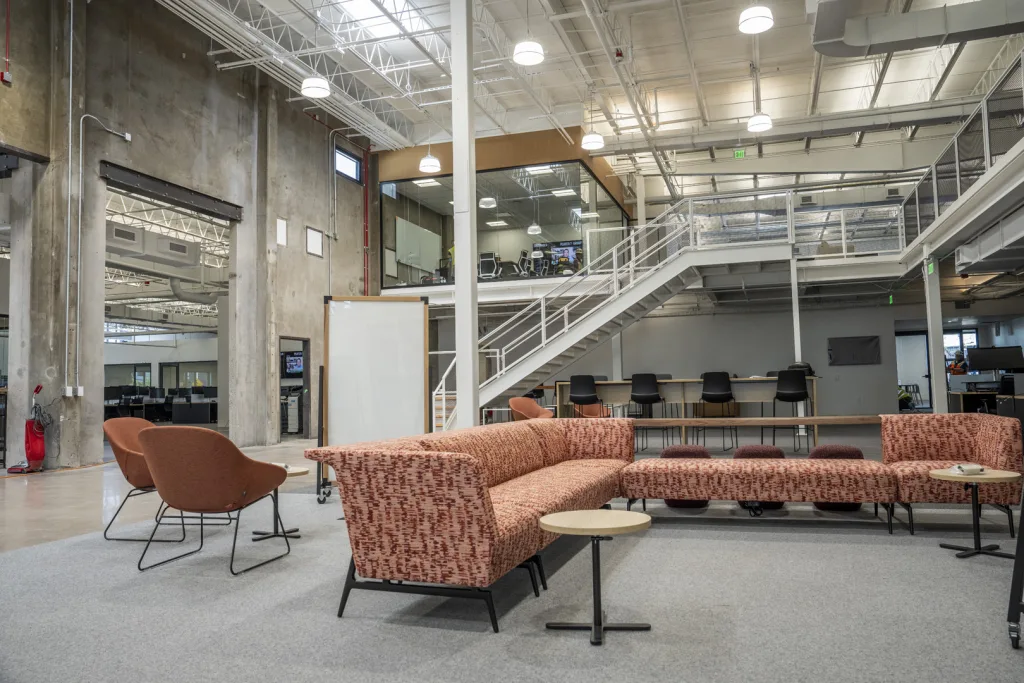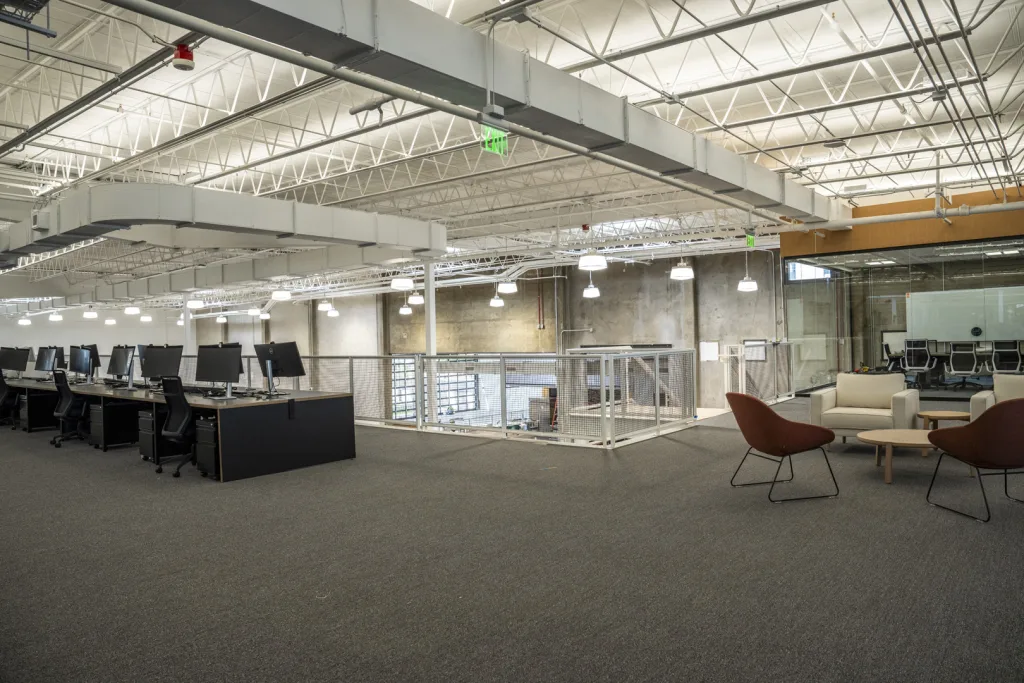In Michael Lewis’ Moneyball, the Oakland Athletics use data and statistics, rather than traditional scouting methods, to build a team of players everyone else in the league undervalues. The focus of the book was on the athletes—no one thought of the rest of the staff behind the team.
While the Phoenix Suns and Mercury—the men’s and women’s basketball teams, respectively—aren’t applying data-driven scouting methods to hire for their accounting or marketing departments, they are trying something unusual to give an advantage for the employees who handle everything from ticket sales and sponsorships to finance and human resources: a $100 million headquarters.
Most pro sports teams use in-arena workplaces as offices, but for Phoenix Suns and Mercury employees—excuse me, “team members,” as owner Mat Ishbia insists on calling them (“Everybody’s a player here,” he says. “We’re all part of one team.”)—they’ll now be working out of a headquarters that has the feel of a well-funded tech company.
“This isn’t like a normal office,” Ishbia says. “A lot of sports companies focus on the players, which is great, we do that as well, but we focus on everybody that works in our organization.”
Architecture as an investment
Gensler and von Staden Architects designed the more than 76,000-square-foot, open-concept campus, which is housed in a former Coors distribution factory in Phoenix’s Warehouse District, three blocks from the arena. It has a pickleball court, indoor and outdoor basketball courts, a weight room, golf simulator, three pantries, water-filling stations, coffee machines, and a nitro cold brew coffee tap, and a kitchen that will serve breakfast and lunch daily.

There are more than 350 workstations, 18 structured meeting spaces, including a 60-person conference room, nine editing bays—five for broadcast and four for digital—a print shop, and a studio for the marketing team. The Mercury are getting an all-new training facility, and a back patio has views of South Mountain and flight paths in and out of Phoenix Sky Harbor.
Ishbia bought the Suns and Mercury in December 2022 for $4 billion, which is a league record. Right away, he knew that the current office set up at the Footprint Center arena wouldn’t do. “I don’t think you can build a great team without a great workplace and environment to work,” he says.
He calls the Pontiac, Michigan, office of United Wholesale Mortgage where he’s CEO, “the center of the success of what we built” because it shows employees he cares. He wanted the same for Player 15 Group, the investment company for the Suns, Mercury, Phoenix NBA G League team, and arena operations.

Office as culture
At a time when some industries are embracing a new work-from-home norm, Player 15 Group is heading in the opposite direction, designing a workplace Ishbia hopes team members are excited. The open-concept plan was intentional, and there’s no C-suite wing.
“It’s all one location, you can see everybody, and it’s very open,” he says. “We’re doubling down on the fact that culture always wins, team always wins, and in order to have a great culture, you have to all be in the same building.”
CEO Josh Bartelstein says the behind-the-scenes work that goes into running a pro team is “critical” for its success. “Everyone that watches the Suns and Mercury play just sees the coaches and the players on the court, but there’s so much else that happens behind the scenes,” he says. “We could have stayed where we were, you know, it’s good, it wasn’t terrible, everything here is working, but Mat’s vision of it was to make the best and build something new.”

Moving business operations out of the Footprint Center frees up real estate in the arena they plan to fill with fan experiences, like restaurants, bars, and a kid zone, so it’s a “two-for-one” Ishbia says, and the new headquarters also has a public-facing component. There’s space to host community events and the front lobby will be open to the public with a team store and space to show off items from Suns and Mercury history, like shoes and basketballs.
“It is so exciting to see yet another landmark investment by the Suns in Phoenix,” Phoenix Mayor Kate Gallego says. “This new facility will expand the footprint of the Suns and Mercury in our downtown, not only benefiting the players, but also supporting our local businesses, enhancing the fan experience, and cultivating an even stronger sense of community and civic pride.”
As the Athletics redefined scouting, could Phoenix raise the bar for what pro sports professionals expect of their workplaces? When it comes to recruitment and retention, Bartelstein, the CEO, certainly thinks it will help.
“When you build something like this, it’s all intentional,” he says. “Everything that we did here was intentionally to promote making it a great place to work.”
